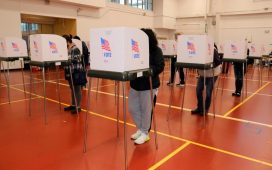Though many people have been taught not to ride their horses right after they’ve eaten, this adage doesn’t hold true for horses that are prone to ulcers. Though eating a large starch meal can affect the available metabolites of a horse that is working, allowing a horse to eat forage before he is worked can offer multiple health benefits, reports The Horse.
Chewing releases saliva that contains calcium and sodium bicarbonate, which buffer the stomach from constantly secreted gastric acid. However, when horses don’t have food in front of them, they have no reason to chew, so stomach acid is secreted with no saliva to buffer it. This makes the stomach increasingly acidic, raising the risk of ulcers.
When a horse hasn’t eaten in a few hours and then is asked to work, the stomach is more acidic and there are less stomach contents to prevent the movement of stomach fluid. Typically the fluid in the stomach is covered by floating hay and feed the horse has ingested, which prevents the acid from sloshing around. This “mat” of food assists in preventing ulcers, specifically in the upper stomach.
To help prevent the risk of ulcers, a horse that has not eaten in a few hours should be offered a small amount of forage to help prevent stomach acid from sloshing and potentially causing ulcers. If given a choice of forage, alfalfa’s high protein and calcium content can offer additional buffering capacity.
Read more at The Horse.
New to the Paulick Report? Click here to sign up for our daily email newsletter to keep up on this and other stories happening in the Thoroughbred industry.
Copyright © 2020 Paulick Report.








